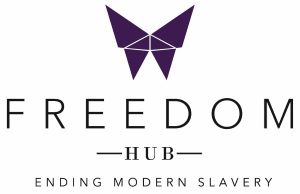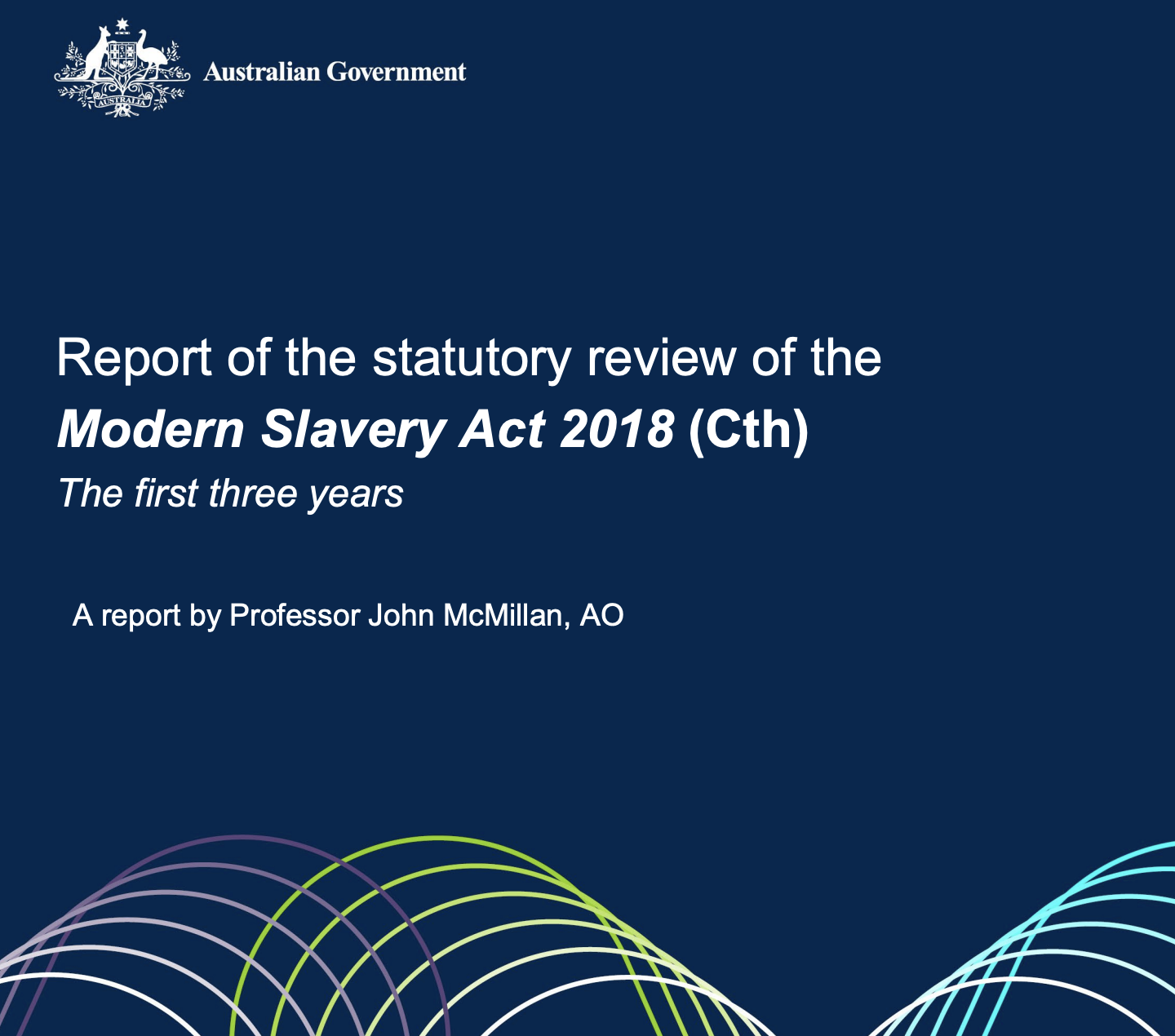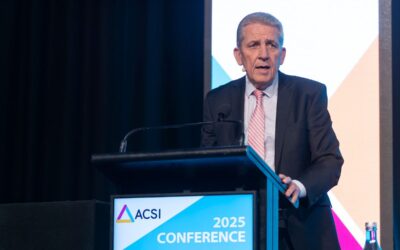Executive Summary of the Modern Slavery Act Review
It is a universal truth that slavery is abhorrent and intolerable.
All levels of society bear a collective responsibility to combat slavery. This shared commitment must take many forms. Where once slavery could be stopped by a law making it a criminal offence to own or treat a person as a slave, a different response is now required in a complex and interconnected world economy.
New terminology captures the different forms that slavery can take. Common descriptions of slavery practices include human trafficking, servitude, worker exploitation, child labour, forced marriage, debt bondage and deceptive recruiting. Collectively, these practices are nowadays described as modern slavery. Australia has a diverse range of laws, programs, networks and support services to address this immense challenge. A key element of Australia’s response is the Modern Slavery Act 2018. It is described as a transparency reporting law.
The Act requires large businesses and other entities in Australia to submit an annual statement to the Australian Government on how they are addressing modern slavery risks in their domestic and global operations and supply chains. The statements are placed on an online public register, the Modern Slavery Statements Register.
Review of the Modern Slavery Act
The Act requires a review to be conducted three years after it commenced (on 1 January 2019). The 12-month review commenced on 31 March 2022.
The Act has generated great interest in Australia. It was appropriate that public consultation would be at the centre of the review. This was undertaken in numerous ways – by publication of an Issues Paper in August 2022, through an online questionnaire based on the Issues Paper, an online survey being sent to all entities that had submitted a statement under the Act, and targeted consultations and meetings around Australia, both in person and online. The review received 136 submissions, 30 responses to the online questionnaire, 496 responses to the online survey, held 38 consultation meetings attended by 285 organisations, and held another 65 meetings with government officers in Australia and abroad. Participants in the consultation and submission process came from all quarters – business, government, civil society, academia, unions, charities and peak bodies and professional associations.
Three questions lay at the heart of this review. Can a law such as the Modern Slavery Act be effective in combating modern slavery? Could the Act be more effective if changes were made to how it is framed and administered? Is the law being taken seriously?
A widely endorsed view in the consultations for this review is that there is no hard evidence that the Modern Slavery Act in its early years has yet caused meaningful change for people living in conditions of modern slavery.
There are occasional scattered instances of modern slavery incidents and victims being identified, but no strong storyline that the drivers of modern slavery are being turned around. That said, there is a strong belief that business – overall – is taking the Act and the reporting requirement seriously. Numerous changes and innovations point to this happening – executive-level training, the appointment of specialist staff, auditing, and supply chain mapping, interrogation of suppliers, creation of professional networks, revision of contract arrangements, and greater multi-stakeholder collaboration, including civil society. Investors are paying closer attention to the quality of modern slavery reporting by investment targets. Procurement processes are likewise focussing on this issue.
Summary of the Review
Overall, it is said, there has been a major cultural change and a strengthening commitment to work and collaborate harder to combat modern slavery. This is the early phase of a long journey. Not surprisingly, this review heard a competing view. Modern slavery reporting is not being taken seriously enough.
Independent studies and government evaluation have found a high level of apparent noncompliance, sometimes with basic requirements and at other times with best practice expectations.
There has been an improvement in the quality of statements from one reporting period to the next, but the change is not significant enough. It resembles a tick-box exercise by a number of entities – a race to the middle!
The report makes thirty recommendations for change and they are listed on page 11 of the report. Click here to see the report.
Recommendations Made by the Report
Some of the recommendations that will have a big impact on businesses include:
- The introduction of penalties
- A Modern Slavery Commissioner
- A ‘reporting entity’ becomes an entity that has a consolidated revenue of at least $50 million for the reporting period. (currently $100m)
- Tailored guidance to small and medium-sized entities on complying so they can submit a voluntary statement and supply large organisations
- A new mandatory reporting criteria that would require an entity to report on: 1.modern slavery incidents or risks identified by the entity during the reporting year 2. grievance and complaint mechanisms made available by the entity to staff members and other people, and 3. internal and external consultation undertaken by the entity during the reporting year on modern slavery risk management.
- All modern slavery statements submitted under the Act include a coversheet that addresses specified matters.
- Amended to provide that it is an offence for a reporting entity: • to fail, without reasonable excuse, to give the Minister a modern slavery statement within a reporting period for that entity • to give the Minister a modern slavery statement that knowingly includes materially false information • to fail to comply with a request given by the Minister to the entity to take specified remedial action to comply with the reporting requirements of the Modern Slavery Act • to fail to have a due diligence system in place that meets the requirements set out in rules made under s25 of the Act.
How can The Freedom Hub help?
The Freedom Hub and our Ethical Business Advisory offers services that:
- provide a gap analysis in your company Modern Slavery Statement and recommendations to improve
- a three year strategy to work on your repsonse to slavery
- a remediation plan for the identification of modern slaves
- a Survivor Advisory on your company policies and processes ensuring lived experience is considered
- opportunity to engage employees in vounteer days helping the survivors in our Survivor School
- oportunities to sponsor or employ a survivor of modern slavery
- an easy to use and practical Risk Analysis and Measurement Platform (R.A.M.P) that assists your company in managing suppliers, assess your supply network, manage your risk and controls to mitigate and remdiate slavery. It includes a comms tool with a dashboard, an internal work flow and an audit trail to get your team off spread sheets. Ask for a free demo HERE.




